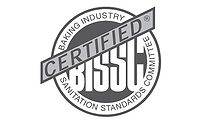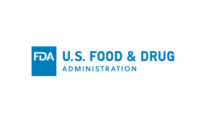A collaborative effort to help small dairy manufacturers meet safety guidelines
A recently launched Wisconsin food safety program is designed to help small artisan dairy manufacturers meet FSMA guidelines

Manufacturing safe, wholesome products is perhaps the most important aspect of any dairy foods business, especially when it comes to consumer confidence. Therefore, as an industry, we are always looking for ways to improve our products and maintain the most robust food safety protocols possible. This process is imperative, but it also presents challenges, as new regulations often require additional training and additional costs.
Support for small producers
For smaller businesses and artisan dairy producers, such changes can be a heavy burden, as these producers might not have the dedicated staff available to easily and quickly complete these requirements, as well as all of the required documentation. Seeing this, the dairy foods industry has done what it does best — come together to support one another with the launch of the Food Safety Modernization Act (FSMA) Training and Consultative Service program, officially titled the Artisan Dairy Producer Foods Safety Initiative.
A Wisconsin program dedicated to helping small artisan dairy manufacturers meet FSMA guidelines, this program is an example of the collaborative education efforts we can all invest in to ensure dairy foods continue to be the safe, wholesome products consumers have come to expect.
The program’s goals
Launched in 2016 with financial support from the USDA and a National Institute of Food and Agriculture grant, this program is being led by the Wisconsin Cheese Makers Association (WCMA) in partnership with the Center for Dairy Research (CDR), Dairy Farmers of Wisconsin (DFW) and industry consultants Larry Bell and Jim Mueller. To date, the program has assisted more than 80 companies as they navigate regulatory language and develop plans to meet the new federal expectations.
Ultimately, we hope we can help these artisan cheesemakers become compliant with the Global Food Safety Initiative by preparing them for food safety audits executed for British Retail Consortium Global Standards or the Safe Quality Food Program.
“This project provides valuable resources and assistance to the small processors who typically do not have access to such material,” said CDR Safety Coordinator and Initiative Co-Director Marianne Smukowski. “Armed with these resources, small processors are able to have a food safety plan in place and meet the FSMA requirements, giving them confidence that they are selling the safest and most wholesome dairy products.”
Expanding the program
Expanding this type of program beyond Wisconsin and growing this type of internal industry leadership and education will be essential to keeping dairy at the forefront of food safety and best practices.
We are eager to share this work and encourage the industry to collaborate on future initiatives that bridge education, research and application.
In fact, without the various partners and their expertise, none of this would have been possible. From the technical support provided by CDR and DFW to the education expertise provided by industry consultants Mueller and Bell, this project required collaboration at every turn.
High satisfaction rate
A full report on the program will be available in early fall 2018, but to date, all of the plants that participated in the program indicated they are satisfied with the help. In fact, more than 78% of plant representatives polled stated that they are very satisfied.
Such success with a pilot program like this provides the industry with the blueprint it needs to move forward with similar food safety programs in Wisconsin and across the country. It also showcases the need for innovative education efforts so the industry can maintain its role as a leader in food safety.
As Mueller said, “Food safety is essential, and our knowledge and best practices are always changing. As an industry, we cannot become complacent when it comes to safety.”
Looking for a reprint of this article?
From high-res PDFs to custom plaques, order your copy today!






